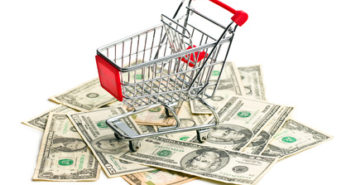The economic recovery cannot walk on its own – that is the conclusion from America’s retail sales figures for Aguust. Expenditure grew by only 0.6%, below 1% expected and on top of a downward revision for July. The Retail Control Group – which is used for Gross Domestic Product calculations – shocked with a drop of 0.1%. Also here, it came on top of a lower level for July.
Economists probably overcompensated for previously underestimaing the strength of the US consumer and thought it could continue going on. They missed the impact of the government.
The main difference between previous months and August is that most of the coronavirus-related relief expired on July 31. Most notably, the federal top-up of $600/week to those out of work vanished and left less money in the pockets of those needing it most.
Democrats and Republicans were expected to strike a deal to extend the relief package but reached a deadline. Republicans even retrenched and lowered their offer to below $1 trillion after August’s satisfactory jobs figures.
Will the dynamic change now? The clock is ticking toward the elections and President Donald Trump would probably want to boast a fast-recovering economy. He could push fellow GOP members – including hawks such as Mark Meadows, his Chief of Staff – to opt for a large package.
While that may be the president’s eventual course, he may wait for stock markets to scream – Trump measures his success on rallying equities. However, gold may already react sooner.
The precious metal has hit new highs in 2020 as central banks and governments have been pouring money to keep the economies going. Fears of devaluation and a sheer amount of money going around has been making its way to push XAU/USD higher.
If Congress passes a general multi-trillion dollar package – instead of waiting for after the elections as investors expect – gold could rally.
In the nearer future, markets are awaiting the Fed decision.
See:
Get the 5 most predictable currency pairs
